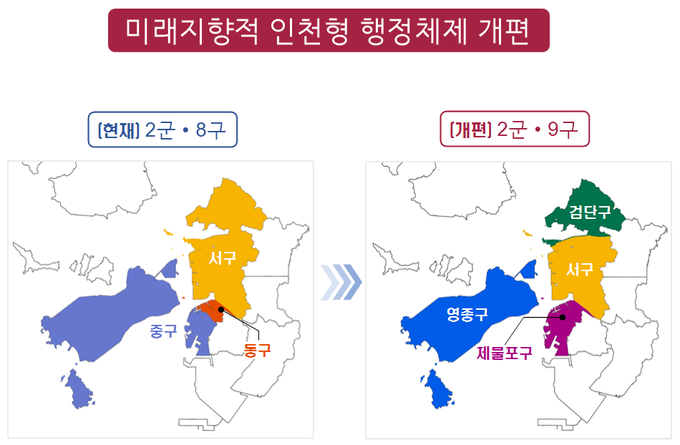
INCHEON, SOUTH KOREA – Incheon's Jung-gu (Central District) is actively engaging with its residents as it progresses in its preparations for the official establishment of the new Yeongjong-gu (Yeongjong District), slated for July 1 of the following year. This significant administrative restructuring aims to better serve the growing population and unique needs of the Yeongjong and Yongyu island communities.
From March 20th to March 28th, Jung-gu hosted a series of nine ‘Communication+Empathy Meetings with Resident Autonomy Committees and Neighborhood Leaders for the Launch of Yeongjong-gu’. These crucial sessions were held across various community service centers within the Yeongjong and Yongyu areas, providing a direct channel for dialogue between local authorities and key community representatives.
The meetings served as a platform for Jung-gu officials to share critical updates and gather valuable feedback from approximately 250 attendees. Participants included the head of the Gu Establishment Preparation Team, dedicated members of resident autonomy committees, influential neighborhood leaders(tongjang), and representatives from the Incheon Metropolitan City Administrative System Reform Promotion Team.
Key aspects of the upcoming district separation were thoroughly discussed, including:
General Status of Yeongjong-gu Establishment: Providing an overview of the progress and timeline for the district's formation.
Yeongjong-gu Government Office Building Operation Plans: Outlining the operational strategies for the new administrative center.
Relocation and Establishment of the 365 Life Safety Center: Addressing the crucial matter of public safety infrastructure in the new district.
Development of Yeongjong-gu Symbols: Discussing the creation of official emblems and identifiers for the newly formed district, fostering a sense of identity.
Change of Information Signage: Planning for the necessary updates to public signage to reflect the new administrative boundaries.
Reorganization of Official Records and Seals: Detailing the logistical process of separating and establishing official documentation for Yeongjong-gu.
A significant portion of each meeting was dedicated to open question-and-answer sessions. Residents and community leaders actively engaged with the officials, raising important questions and contributing their perspectives on crucial issues. Key discussion points included:
Securing Financial Resources for the New Government Building: Exploring strategies for funding the construction and operation of the permanent Yeongjong-gu administrative complex.
Measures to Alleviate Traffic Congestion Around the Temporary Government Building: Addressing potential logistical challenges during the initial transition phase before the permanent building is operational.
Regional Development Plans for Yeongjong-gu in Connection with Incheon City: Discussing collaborative initiatives with the broader Incheon metropolitan government to ensure sustainable and comprehensive development for the new district, leveraging existing city-wide resources and plans. This likely includes discussions on infrastructure development, economic initiatives, and social programs tailored to the specific needs of the Yeongjong and Yongyu communities, which have experienced significant growth due to the presence of Incheon International Airport and related industries.
Jung-gu has reaffirmed its commitment to a resident-centric approach throughout this transition. In an official statement, the district emphasized its dedication to continuous communication and actively incorporating resident feedback. "We will continue to actively communicate with residents and reflect their opinions to the best of our ability so that Yeongjong-gu can be launched in the direction that the residents hope for," a Jung-gu representative stated.
The proactive engagement of Jung-gu with its residents underscores the importance of community involvement in significant administrative changes. By fostering open dialogue and addressing concerns directly, Jung-gu aims to ensure a smooth and successful transition, ultimately creating a more responsive and effective governance structure for the future Yeongjong-gu. The successful establishment of Yeongjong-gu is anticipated to bring more focused administrative attention and resources to the unique needs of the island communities, fostering further growth and development in the region, particularly in areas related to tourism, logistics, and international business connected to the airport.
[Copyright (c) Global Economic Times. All Rights Reserved.]






























